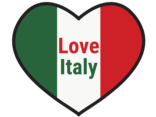Public holidays in Italy, also known as “Festa Nazionale”, are a collection of dates throughout the year that are recognized and celebrated as holidays by the Italian population. These holidays include both fixed dates such as New Year’s Day on January 1, Liberation Day on April 25, Labor Day on May 1 and Republic Day on June 2, as well as movable dates like Easter Monday which varies each year. Other holidays include Immaculate Conception on December 8, Christmas Day and St. Stephen’s Day on December 25 and 26 respectively. These public holidays are a blend of religious, national and regional celebrations.
Key Public Holiday Dates in Italy: A Comprehensive Guide

Italy, renowned for its rich history, vibrant culture and delectable cuisine, is also known for its numerous public holidays. These holidays, deeply rooted in the country’s history and traditions, offer a unique insight into the Italian way of life. This article provides a comprehensive guide to the key public holiday dates in Italy.
The year in Italy begins with Capodanno, or New Year’s Day, celebrated on the 1st of January. This is followed by Epiphany on the 6th of January, a Christian feast day that commemorates the visit of the three wise men to the baby Jesus. Italians celebrate this day with a variety of customs and traditions, including the arrival of La Befana, a witch-like character who brings gifts to children.
Next on the calendar is Easter Sunday and Easter Monday, known as Pasqua and Pasquetta respectively. The dates for these holidays vary each year, as they are based on the lunar calendar, but they typically fall in late March or early April. Easter in Italy is a time of religious processions, traditional Italian foods and family gatherings.
On the 25th of April, Italians commemorate Liberation Day, marking the end of the Nazi occupation during World War II. This is followed by Labour Day on the 1st of May, a day dedicated to workers and their rights.
The 2nd of June is another significant date in Italy, as it marks the Festa della Repubblica, or Republic Day. This holiday commemorates the 1946 referendum when Italians voted to abolish the monarchy and establish a republic. The day is typically marked with military parades and fireworks.
The Assumption of Mary, or Ferragosto, is celebrated on the 15th of August. This Catholic holiday commemorates the belief in the Virgin Mary’s bodily ascent to heaven. It also marks the peak of the Italian summer holiday season, with many Italians taking vacations around this time.
All Saints’ Day, a day to honor all the saints, is observed on the 1st of November. This is followed by the Feast of the Immaculate Conception on the 8th of December, another important date in the Catholic calendar.
The year in Italy concludes with Christmas Day and St. Stephen’s Day on the 25th and 26th of December respectively. Christmas in Italy is a time of family gatherings, festive meals and traditional customs, while St. Stephen’s Day is a day to relax and enjoy the holiday season.
In addition to these national holidays, each city or region in Italy also has its own patron saint’s day, which is considered a public holiday in that specific area. For example, Rome celebrates St. Peter and St. Paul on the 29th of June, while Florence celebrates St. John the Baptist on the 24th of June.
In conclusion, Italy’s public holidays are a reflection of the country’s rich history, diverse culture and deep-rooted traditions. Whether you’re planning a trip to Italy or simply interested in learning more about Italian culture, understanding these holidays can provide a fascinating glimpse into the Italian way of life.
Conclusion
In conclusion, Italy has several public holidays throughout the year. These include New Year’s Day (January 1), Epiphany (January 6), Easter Monday (date varies), Liberation Day (April 25), Labor Day (May 1), Republic Day (June 2), Ferragosto (August 15), All Saints’ Day (November 1), Immaculate Conception (December 8), Christmas Day (December 25) and St. Stephen’s Day (December 26). The dates of these holidays are fixed, except for Easter Monday which changes annually.
Secure Your Dream Italian Experience Before It’s Gone!
Planning a trip to Italy? Don’t let sold-out tours or overcrowded attractions spoil your adventure. Unmissable experiences like exploring the Colosseum, gliding through Venice on a gondola, or marvelling at the Sistine Chapel often book up fast—especially during peak travel seasons.

Booking in advance guarantees your place and ensures you can fully immerse yourself in the rich culture and breathtaking scenery without stress or disappointment. You’ll also free up time to explore Italy's hidden gems and savour those authentic moments that make your trip truly special.
Make the most of your journey—start planning today and secure those must-do experiences before they’re gone!
